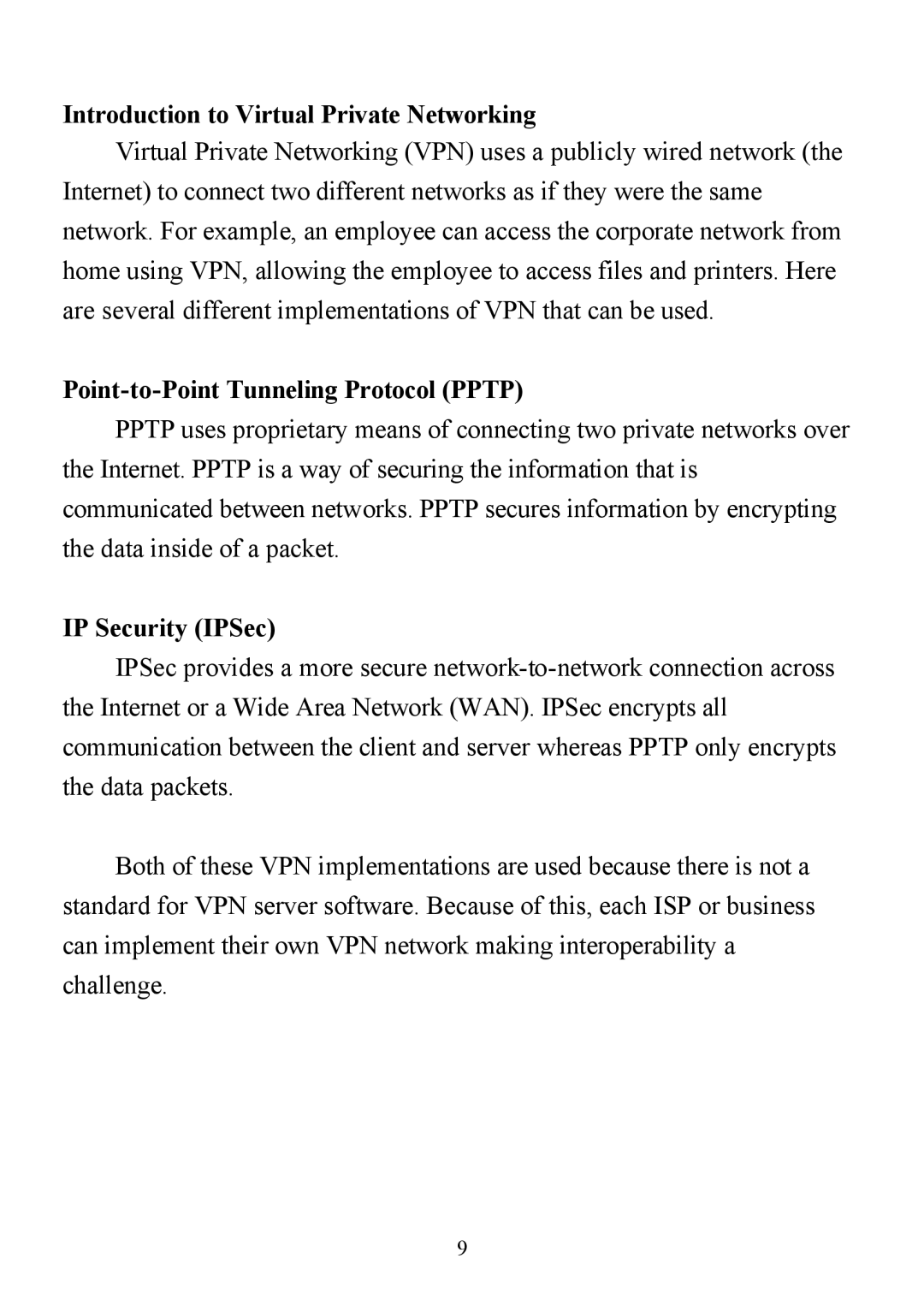Introduction to Virtual Private Networking
Virtual Private Networking (VPN) uses a publicly wired network (the Internet) to connect two different networks as if they were the same network. For example, an employee can access the corporate network from home using VPN, allowing the employee to access files and printers. Here are several different implementations of VPN that can be used.
Point-to-Point Tunneling Protocol (PPTP)
PPTP uses proprietary means of connecting two private networks over the Internet. PPTP is a way of securing the information that is communicated between networks. PPTP secures information by encrypting the data inside of a packet.
IP Security (IPSec)
IPSec provides a more secure
Both of these VPN implementations are used because there is not a standard for VPN server software. Because of this, each ISP or business can implement their own VPN network making interoperability a challenge.
9
